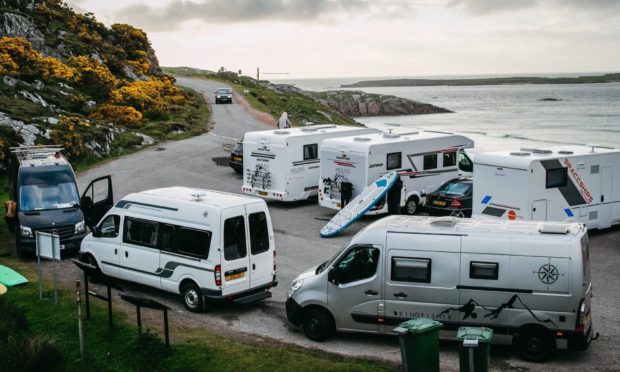Hospitality businesses in the Highlands have warned the expected surge of tourists this summer may hit hard.
Bosses in the area believe Brexit has resulted in a significant drop in the number of available seasonal workers, putting extra pressure on unusually busy sites.
They also suggested people visiting from other parts of the UK are less willing to spend money than the overseas tourists who came to the region before travel restrictions were imposed.
Gairloch Highland Lodge manager Kirk Williams told the Daily Telegraph: “We usually get a lot of German walking groups who take all 25 rooms for four nights and they know what they are coming to.
“Brits are used to going to a week’s all-inclusive in Spain for £300 – here they pay £125 for bed and breakfast.
“They feel it is very expensive to holiday here and they do the North Coast 500 road trip in a weekend.”
Mr Williams added that restrictions coupled with the impact of Brexit had affected his staff numbers too, and that he had been attempting to recruit since February.
He said: “The UK has lost 200,000 hospitality workers due to Brexit.
“It is now fairly easy to get a six-month agricultural visa, but they haven’t extended it to our sector, although we bring in more revenue.”
Feeling the strain
A front-page story in the Sunday Post yesterday said industry data is predicting as many as 6.4 million visitors could be heading to Scotland this summer, with a possible 2.3m travelling to the Highlands specifically.
The newspaper reported that a number of villages on the route of the North Coast 500 are already feeling the strain of rammed roads and campervanners, with local councillor Francis Keith saying Durness in Sutherland “now feels like a town under siege”.
The tourism committee at Highland Council is currently exploring an official approach to overnight parking of motorhomes, to discourage drivers from leaving them on the roadside.
These plans could lead to key sites being identified for such parking, with travellers asked to pay a fee of between £5 and £10 for access.
The Scottish Government’s Rural Tourism Infrastructure Fund has also recently opened for applications, with the aim of providing financial support to places that may be struggling to cope with the influx of visitors.

